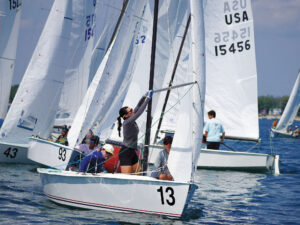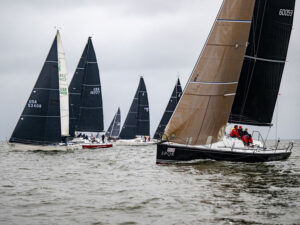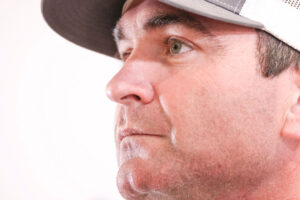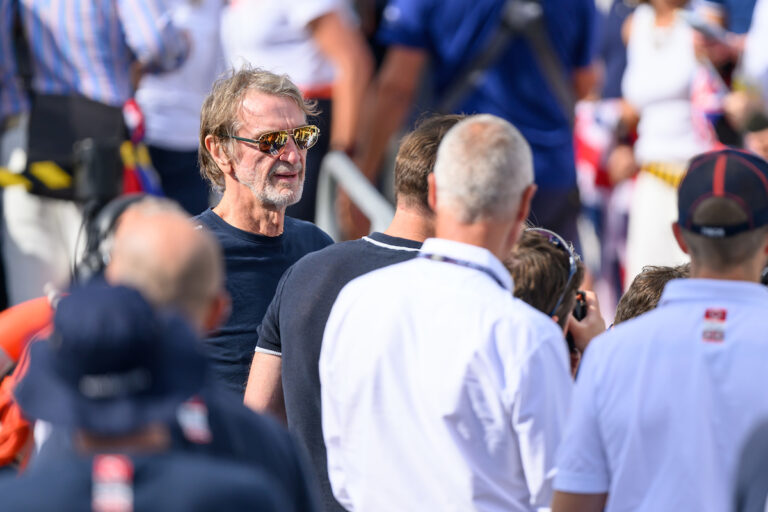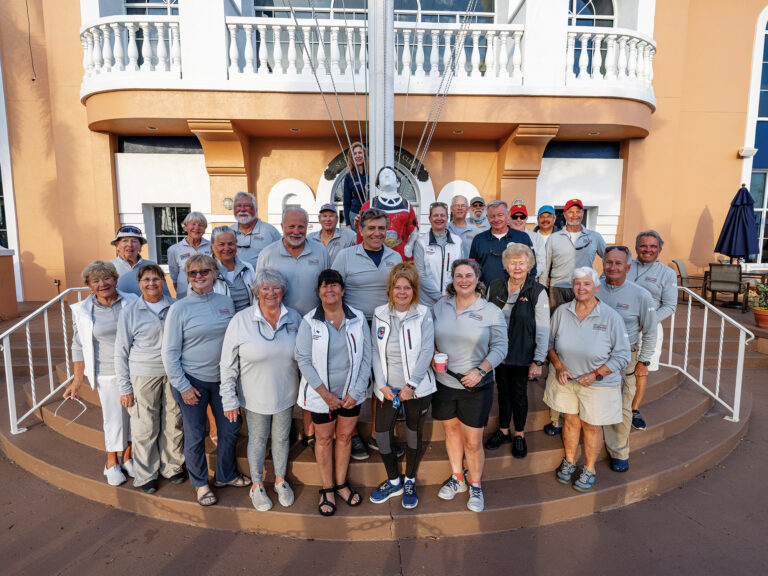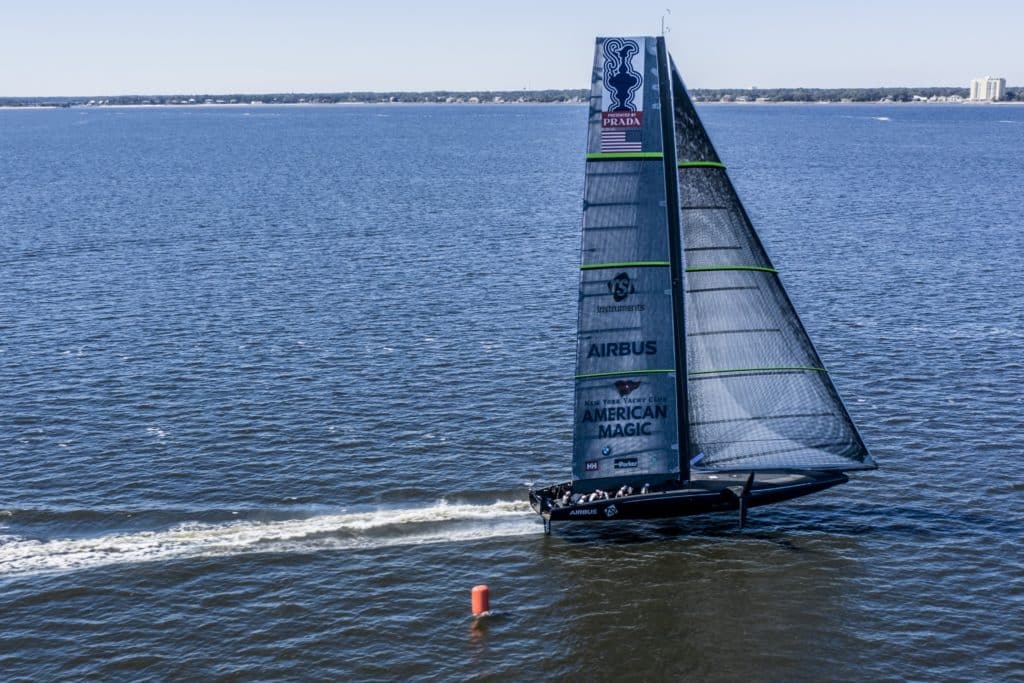
Every night, when Terry Hutchinson arrives “home” to his temporary condo in Pensacola, Florida, he can’t escape the America’s Cup campaign that now consumes his every waking minute. Right there in front of him is the grinding machine that’s been relocated from the team’s half-packed base at the Port of Pensacola. For the American skipper, it’s a constant reminder of the daily grind required to get his team to the 36th Cup Match in March 2021.
By now, he should’ve been doing dry laps and fine-tuning American Magic’s AC75, Defiant, off Cagliari, Italy, but the Covid pandemic nixed those plans in early March, only days before the team was scheduled to decamp its entire Florida operation. The big ship scheduled to arrive in Pensacola on March 16 was told to stand down, and in the following days, nearly the entire country went into the current stay-home lockdown, leaving the operation in limbo, and everyone on the ground asking, OK, what now?
It’s a simple question with a complex and evolving answer, Hutchinson says. Their second boat is well underway in Bristol, Rhode Island, they can’t sail Defiant (yet) in Pensacola, and somehow, sometime sooner than later, they do need to get the entire show to Auckland by late summer.
“It’s been a difficult few weeks,” Hutchinson says. “What makes this situation hard, today, is the unknown. When we had the America’s Cup World Series on the schedule, what made that hard was the logistical challenges of moving 70 people and our boat and gear around the world over an eight-week period, while at the same time moving our containers to New Zealand. Now, we are eager to get to New Zealand and get setup, but we have to follow the government’s guidelines and there are many things out of our control. There are unknowns in that, and that’s what’s unnerving.”
While they can’t control the unpredictability of the pandemic and its impact on the 2021 event, the schedule or the path forward, the design team can continue to refine their second boat while the sailors remain in “full ready to go sailing mode” in Pensacola. That means a continued focus on fitness for the sailors, as well as hours upon hours inside the simulator room.
“The simulator part of this has been interesting to watch and evolve,” Hutchinson says. “The development that happens there is really on going and that’s as much about researching areas where we can get faster, and understanding where we think the others are as well. When running the sailing operation day in and day out, we don’t get the opportunity to look at other areas, so for sure, the lion’s share of the team is now 100-percent going to development. The execution of Boat 2 is critical, because that is our future.”
While real racing would have been immensely beneficial in Cagliari and Portsmouth, Hutchinson takes some comfort in their practice sessions in February that focused on setting the boat up properly and making sure systems are reliable. Still, there’s plenty more to learn from the simulator. “Development used to take place with two boats next to each other,” Hutchinson says, “but now we have the ability to do that in the simulator. It’s amazing to watch the E-Sports and NASCAR racing, and how realistic it is racing the cars around the track. This is no different; there’s just no water in my face.”
There are known challenges ahead, however, including the procurement of the team’s second set of foil arms, provided by Persico Marine, who’s facilities are in the heart of Northern Italy. Manufacturing there has been reportedly shut down for nearly two months (likely delaying Luna Rossa Prada Pirelli’s second boat, although Hutchinson says he’s not aware of specific delays for the Italian Challenger of Record). “We’ve been reasonably lucky that it hasn’t had as big an impact as it could have, but in saying that, I don’t know if we’re out of the woods yet. We have to keep navigating through that and be ready for all the what-if scenarios.”
The foils arm, supplied equipment, are identical to those on Defiant and would not be required for another five months. If need be, the team could part them out for the second boat when it arrives by airfreight sometime in late August. In the meantime, Hutchinson says, the next puzzle to solve is the relocation of personnel and assets to New Zealand.
“We’re fortunate that a few team members are New Zealand citizens so they could enter in today,” Hutchinson says. “When we ultimately choose to ship to the Southern Hemisphere, we can have them offload the boat, the containers and the tent. We do have a little time to ship and move our assets. We’re prioritizing safety over ambition and I can happily live with that.”
Before the Covid curtain dropped, American Magic logged 40 days with Defiant, Hutchinson says, and while the decision was right to halt, the hardest part has been to be landlocked for nearly four weeks, looking out across an empty Pensacola Bay, wishing they could enjoy the glamor days that should have been.
And that grinding machine in his condo? “Terrible.”

